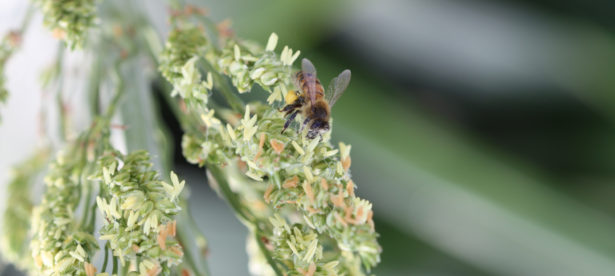Contrary to some media reports condemning a commonly used agricultural pesticide as detrimental to honey bee health, scientists with the UT Institute of Agriculture (UTIA) have found that the overall health of honey bee hives improves in the presence of agricultural production.
The study, “Agricultural Landscape and Pesticide Effects on Honey Bee Biological Traits,” was published in the Journal of Economic Entomology. Authors include Mohamed Alburaki, a post-doctoral fellow, and Scott Stewart, a professor, both with the Department of Entomology and Plant Pathology. According to the study, colonies in a nonagricultural area struggled to find adequate food resources and produced fewer offspring.
Tennessee in the Spotlight
Billed as North America’s premiere agricultural exposition, the Oct. 17-19 40th annual Sunbelt Agricultural Expo in Moultrie, Georgia, features Tennessee as the “Spotlight State.” UTIA, in cooperation with the Tennessee Departments of Tourist Development (TDTD), and Agriculture (and numerous partners from industries, Tennessee State University and federal agencies) is presenting an exhibit that features the agricultural and cultural diversity of the state. Dean of UT Extension Robert Burns (Knoxville ’90, ’92, ‘95) chaired the statewide planning committee.
Melody Rose (Knoxville ’05), a UT Extension agent from Greene County, and Melanie Beauchamp, with TDTD (Knoxville ’98), spearheaded the exhibit design. Housed in a 40-by-75-foot building, the exhibit takes its cue from the state’s tourism theme— The Soundtrack of America: Made in Tennessee.
Going Social to Help Trees
A new app for your phone, TreeSnap, lets you help scientists help ourforests. Meg Staton, assistant professor of bioinformatics in the department of entomology and plant pathology, is participating in a $3 million grant from the National Science Foundation that focuses on native trees which are rare or endangered due to pests and pathogens. Anyone can participate by geo-tagging individual trees with health information and images. Tag trees in your community using the app, and the data will allow scientists to find trees to use for research projects.
Download TreeSnap free from Google Play or the Apple App Store.
Save
Save
Save
Save

